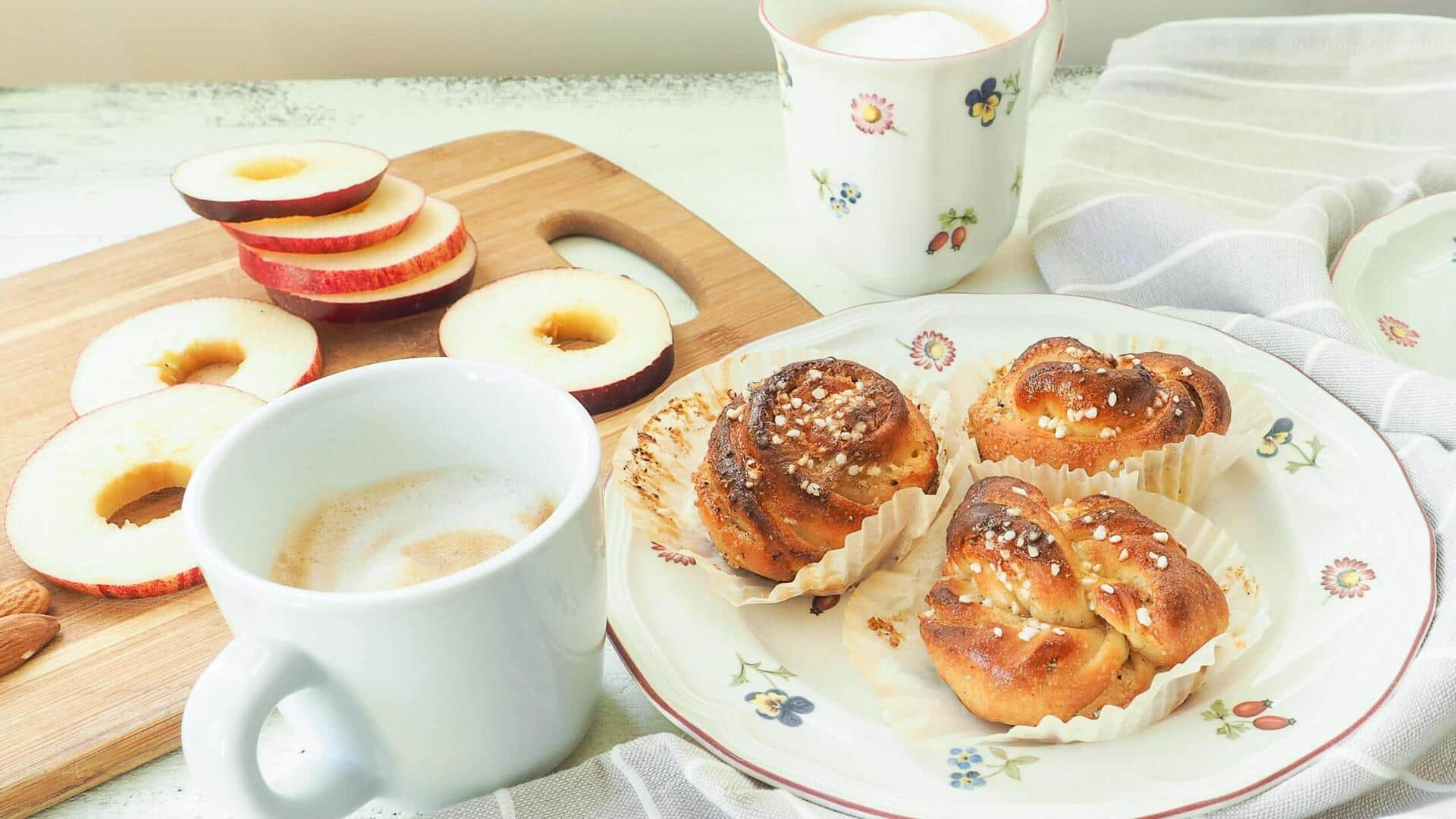
Fascinating things about Swedish fika culture
What's the story
Fika isn't just a coffee break but a beloved Swedish tradition. It is a cultural ritual that highlights the importance of taking time off to connect with other people. The practice is rooted deep in Swedish culture and gives us an idea of how much the country values community and relaxation. Knowing fika shows how Swedes maintain a balance between work and leisure, both of which keep them happy and socially united.
Ritual
The essence of fika
Fika isn't just about gulping coffee, it's about an intentional pause in your day to enjoy a calm moment. Usually including coffee or tea with pastries or sandwiches, fika urges people to leave their tasks and have meaningful conversations. The ritual emphasizes the importance of slowing down and appreciating the simple pleasures of life.
Community
Social connection at its core
At its heart, fika is about connection. Whether it is shared with work colleagues or home friends, it is an opportunity to strengthen relationships. In Swedish offices, fika breaks are a common practice, encouraging team bonding and collaboration. This emphasis on social interaction underlines how much Swedes value community over individualism.
Routine
A daily tradition for many
For many Swedes, fika is a part of their daily life. It happens twice a day—once around mid-morning and once mid-afternoon—giving frequent breaks for relaxation in between busy schedules. This practice epitomizes the Swedish way of maintaining a balance between productivity and well-being by ensuring that moments for rest are integrated into their lives.
Balance
Fika's role in work-life balance
Clearly, fika is essential to maintaining work-life balance for Swedes. By encouraging people to take breaks while working, it reduces stress levels and enhances overall job satisfaction. Companies that adopt this tradition also witness improved employee morale and productivity, as workers return rejuvenated after a break.
Simplicity
Embracing simplicity through fika
Fika's simplicity also mirrors Swedish values like minimalism and sustainability. It prioritizes quality time over lavish experiences or material wealth, highlighting an appreciation for human connections above consumption. This tradition showcases the importance of pausing daily, focusing on the fact that contentment and community can be found in simple pleasures.